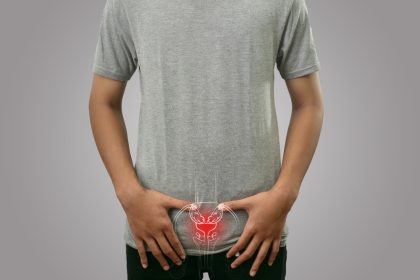Few daily habits generate as much unspoken anxiety as bathroom routines. For some men, the choice between sitting or standing while urinating becomes a source of surprising discomfort, rooted in cultural norms, personal insecurities, and health considerations. Understanding these complex factors helps address underlying fears and promote healthier attitudes.
Cultural expectations and masculinity
Societal expectations around masculinity significantly influence how men approach even private moments. Standing while urinating has historically symbolized traditional male behavior, representing strength and control. Many cultures wrongly interpret sitting as submissive or less masculine, creating unnecessary pressure on men’s daily choices.
This conditioning often begins in childhood, as boys observe male role models and internalize standing as the “correct” method. These early experiences shape lasting beliefs about acceptable behavior, even in private settings. The impact of these cultural norms extends far beyond bathroom habits, affecting how men view themselves and their masculinity.
Understanding psychological barriers
Fear of judgment or ridicule prevents many men from choosing comfort over convention. Even private behaviors become subject to imagined scrutiny, as past experiences with negative comments or jokes create lasting insecurity. The bathroom, meant for personal care, transforms into a space where societal expectations battle personal comfort.
Childhood experiences particularly influence these fears. Men who faced teasing or criticism for sitting often carry that trauma into adulthood, affecting their choices even in private settings. This psychological impact demonstrates how deeply cultural norms can affect personal behavior.
Health considerations
Medical professionals sometimes recommend sitting to fully empty the bladder, particularly for men with certain health conditions. Prostate issues, urinary tract infections, or conditions causing standing discomfort may necessitate sitting. However, stigma often prevents men from following this medical advice, potentially compromising their health.
Research suggests sitting offers several health benefits, especially as men age. This position can help achieve complete bladder emptying, reducing infection risks and other complications. For those with enlarged prostates, sitting allows full relaxation of pelvic muscles, providing relief and better urinary flow.
Impact of toxic masculinity
The pressure to conform to traditional male stereotypes often damages men’s health and well-being. Refusing to sit, even when medically beneficial, exemplifies how societal pressures override personal health needs. This behavior pattern reflects broader issues in how men approach self-care and health maintenance.
Men feeling compelled to perform masculinity in all aspects of life might avoid comfortable or healthy choices, prioritizing perceived social norms over physical well-being. This tendency highlights the need to challenge harmful stereotypes and encourage healthier attitudes toward personal care.
Changing perspectives
Addressing these fears requires significant cultural shift. Normalizing the idea that urination habits represent personal choice helps reduce stigma and promote healthier attitudes. Creating environments where men feel comfortable prioritizing health over appearances encourages better decision-making about personal care.
Parents and caregivers play crucial roles in breaking cycles of shame. Teaching children that both sitting and standing represent valid choices promotes healthier attitudes about personal preferences and hygiene. This early education helps prevent future generations from carrying similar anxieties.
Promoting healthy dialogue
Health care professionals can contribute by educating patients about sitting’s potential benefits, particularly for those with medical conditions. Framing discussions around health and practicality, rather than social stigma, helps men make informed decisions based on personal well-being rather than social pressure.
Open conversations about men’s health, free from judgment or ridicule, create more accepting environments where men feel empowered to prioritize comfort and health. These discussions help challenge outdated stereotypes while promoting better understanding of personal health needs.
Moving forward
Breaking free from fears about urination habits requires understanding their cultural roots and fostering more accepting attitudes. Whether choosing to sit or stand, the focus should remain on comfort, hygiene, and well-being rather than conforming to societal expectations.
By challenging outdated stereotypes and prioritizing health over appearances, men can make choices better suited to their individual needs. Creating supportive environments where personal preferences receive respect helps promote healthier attitudes toward all aspects of men’s health.
This story was created using AI technology.











